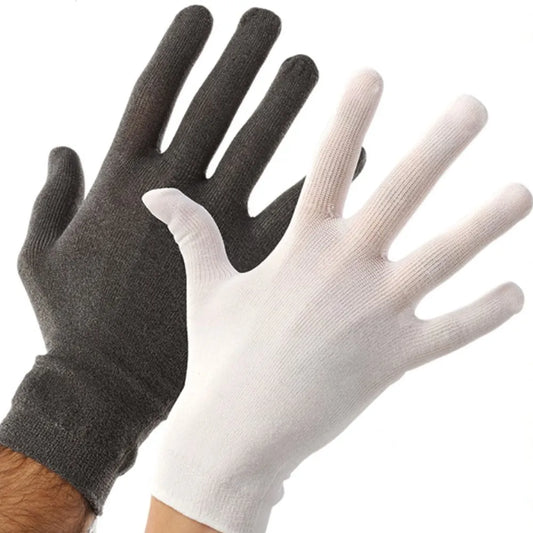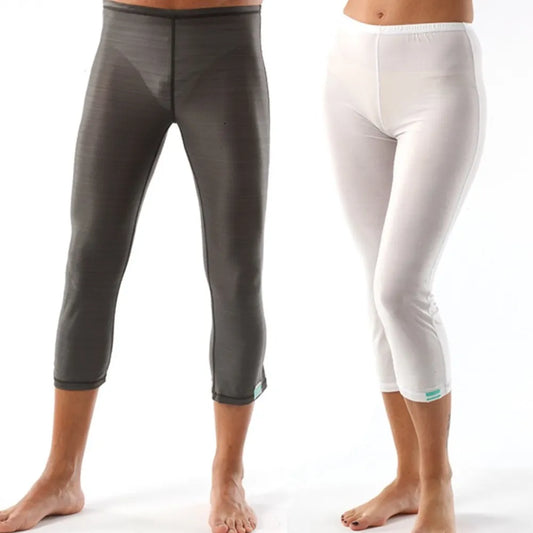Eczema and psoriasis are both inflammatory diseases and we know that we are what we eat. So can our diet reduce inflammation and reduce the symptoms of these troublesome conditions? We look at the evidence supporting the use of the Mediterranean diet in managing eczema and psoriasis.
What does a Mediterranean diet really look like?
Sadly, not stacks of pizza and bowls of pasta!
The term Mediterranean diet was coined in the 1950s to describe the diet eaten by the people of Crete. This population had a markedly low prevalence of chronic diseases and a high life expectancy. Obviously diets vary greatly around the Mediterranean region based on local food availability and customs. However, this is a broad outline.
Fish
Aim for 3 servings (about 80g) per week. Look for oily fish including salmon, tuna, herring, mackerel or sardines. Extra-virgin olive oil (and olives): Extra-virgin oil has been extracted in the traditional way, without the use of chemicals and heat. This means that the plant phenols it contains are not destroyed in the extraction process. Aim for 1-4 tablespoons per day.
Fruit
The traditional Mediterranean diet includes lots of local, seasonal fruits: citrus, cherries, plums, figs and melons. Aim for 4-6 portions of colourful fruit per day. Large fruits like apples and oranges count as one serving. For smaller fruits like plums and figs, a serving is 2-3 fruits.
Vegetables
Fill up on vegetables, at least 2-3 servings per day, especially leafy greens. Both fruits and vegetables provide antioxidants, phytochemicals and phytonutrients. Aim for a wide variety of first and vegetables as this may well have been one of the key strengthens of the original Mediterranean diet. New research suggests that we should be eating at least 30 different plants every week.
Legumes
Beans and lentils are a great source of protein and make a great meat substitute. They don’t have to look like boring beans, hummus is a tasty way to eat chickpeas. Aim for three 80g servings per week.
Nuts
Again, variety is key. Walnuts, almonds and hazelnuts commonly eaten in the Mediterranean region. Nuts are calorific as well as tasty (especially the salted versions) so watch how many you eat. Aim for around three 30g servings per week.
Whole grains and starchy vegetables
Three to six servings per day of wholegrains. As the refining process strips away the nutritionally useful parts, you’re looking for minimally processed grains like oats, quinoa, barley and brown or wild rice. Traditionally grains would be eaten as bread, often dipped in olive oil. Starchy vegetables include potatoes, sweet potatoes and squashes.
Meat
There’s very little red meat in the Mediterranean diet, no more than one portion (80g) per week. White meat is also limited to 1-2 portions per week. Instead protein is found in nuts, eggs (1-2 per week), dairy and fish.
Dairy products
Yoghurt and cheeses like feta feature strongly in the traditional Mediterranean diet (1-2 portions per day). It’s interesting to note that traditionally Mediterranean dairy animals grazed on green leafy plants rather than the grains and beets used in high intensity farming. This resulted in the milk having higher levels of omega 3 than we typically see today.
The Mediterranean diet and inflammation
The Mediterranean diet has been shown to reduce inflammation and inflammatory markers such as CRP and IL-61. Other diets such as DASH, vegan and vegetarian diets don’t show such a big reduction2.
Although there are few studies available that looked at the benefits of the Mediterranean diet in adults with eczema3, there is evidence that patients with psoriasis benefit from this diet4. It’s not clear exactly how the Mediterranean diet reduces inflammation. There are a two possible mechanisms under investigation.
Omega 3
The key source of fats in the Mediterranean diet is olive oil. The diet also included plenty of fish. Both of these are good sources of omega 3 which are associated with reduced inflammation. In contrast, omega 6 oils which dominate the typical western diet are pro-inflammatory. The ratio of omega 6 to omega 3 oils in a Mediterranean diet is around 2:1. In the typical European or American diet this is 15:1 and 74:1 respectively.
Anti-oxidants
The Mediterranean diet includes a lot of fruit and vegetables rich in antioxidants. These include glutathione, vitamin C, vitamin E, vitamin A and polyphenols (primarily flavonoids). Antioxidants scavenge free radicals from the body cells and prevent or reduce the damage caused by oxidation. A number of observational studies have suggested that antioxidants can help with eczema management.
So can a Mediterranean diet help with eczema and psoriasis?
Early research strongly suggests that psoriasis symptoms can be ameliorated by following a more Mediterranean diet. This it thought to be due to anti-inflammatory nature of the diet coupled with the high levels of vitamin D and omega 3 oils2.
Even though the evidence supporting the benefits of a Mediterranean diet isn’t as strong for eczema as psoriasis, it makes sense for people with inflammatory skin conditions to try sticking to a Mediterranean style diet because there is little downside to it. The Mediterranean diet is high in plants and low in ultra-processed foods so is very much in line with current thinking for eating well for overall health.
The Mediterranean diet has been shown to reduce the risk of cardiovascular disease and obesity. Switching to eating this way is also protective against cognitive decline. So even if it doesn’t noticeably improve your eczema, it is likely to improve your overall health, making your eczema easier to deal with. It's certainly my experience that when my diet is better, I feel better in myself and more resilient.
It’s worth reiterating: The Mediterranean diet is a lifestyle, a way of eating for the long term. Some benefits will appear quickly, others will take a while to build up. You can make small moves towards a more Mediterranean diet by including fruit after meals, switching to using extra-virgin olive oil and substituting refined with whole grains.
Our sources
- https://pubmed.ncbi.nlm.nih.gov/34607347/
- https://www.ncbi.nlm.nih.gov/pmc/articles/PMC6143029/
- https://pubmed.ncbi.nlm.nih.gov/11694649/
- https://pubmed.ncbi.nlm.nih.gov/17412780/








